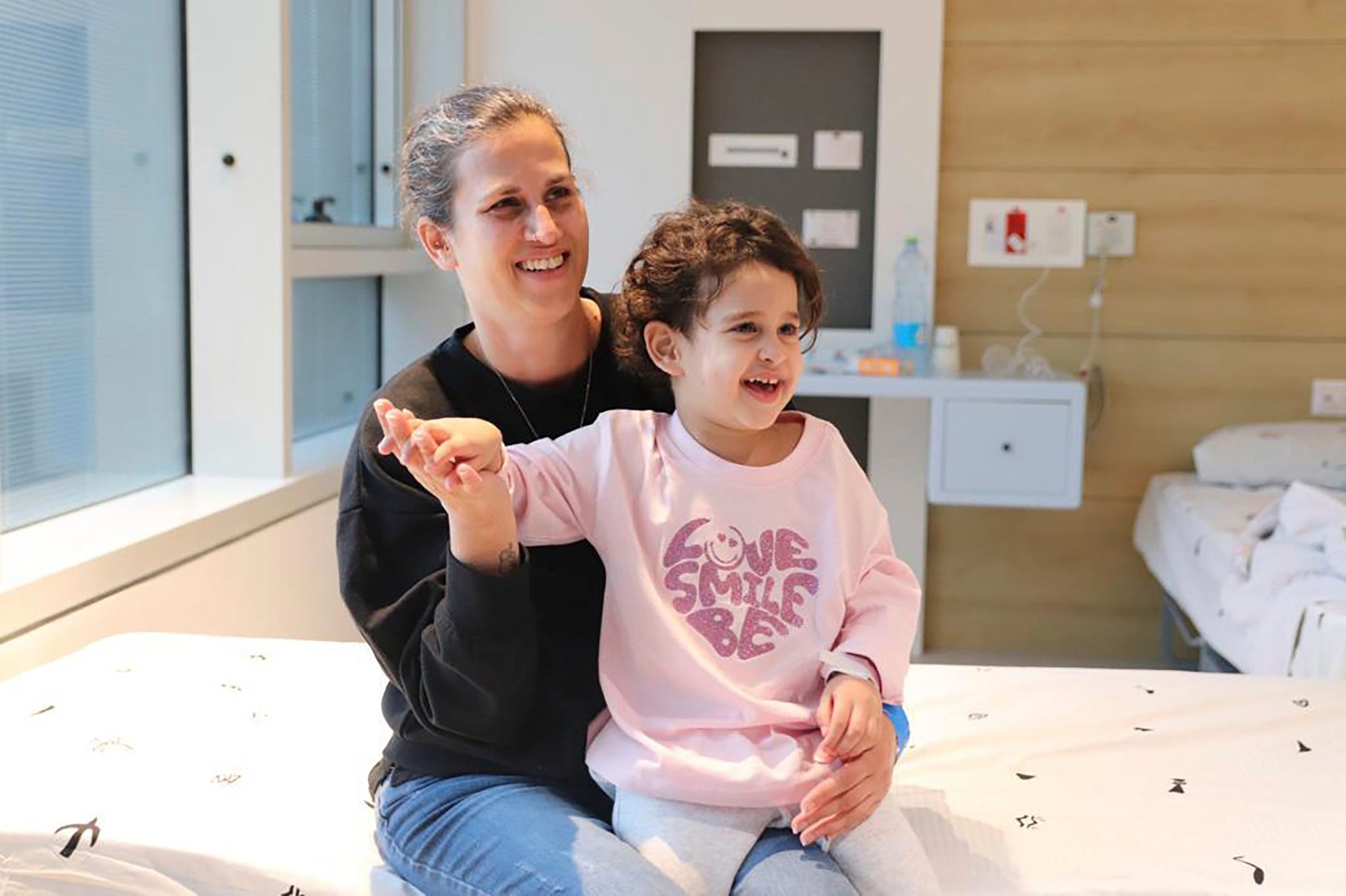Families of American hostages in Gaza describe their anguish and call on US government for help
Families of American hostages held by Hamas in the Gaza Strip are describing their anguish and calling on the U.S. and Israeli governments to do all they can to bring home their loved ones home

Your support helps us to tell the story
From reproductive rights to climate change to Big Tech, The Independent is on the ground when the story is developing. Whether it's investigating the financials of Elon Musk's pro-Trump PAC or producing our latest documentary, 'The A Word', which shines a light on the American women fighting for reproductive rights, we know how important it is to parse out the facts from the messaging.
At such a critical moment in US history, we need reporters on the ground. Your donation allows us to keep sending journalists to speak to both sides of the story.
The Independent is trusted by Americans across the entire political spectrum. And unlike many other quality news outlets, we choose not to lock Americans out of our reporting and analysis with paywalls. We believe quality journalism should be available to everyone, paid for by those who can afford it.
Your support makes all the difference.The last Omer Neutra's parents heard from him, he told them reassuringly that he anticipated a quiet weekend.
But they checked the news anyway before getting ready for bed in New York, their nightly routine as parents of a tank commander in the Israeli military tasked with protecting small villages near the Gaza Strip. What they saw horrified them.
“Of course, everything was wrong. Immediately, we understood that he's right there,” his mother, Orna Neutra, said Wednesday of the brutal Oct. 7 rampage by Hamas that killed more than 1,200 civilians and soldiers and triggered a war in Gaza.
They would later learn that their son, a dual Israeli-U.S. citizen, had been ambushed and pulled out of his tank. He was taken to Gaza, where he is believed to remain as a hostage more than 50 days later.
The Neutras joined relatives of three other American hostages — including of newly freed 4-year-old Abigail Edan — in calling for the governments of Israel and the United States to do all they can to bring home their loved ones. The group is in Washington to plead their case with journalists, at a legislative hearing on Capitol Hill and in meetings with senior Biden administration officials.
International mediators, meanwhile, made progress Wednesday on extending a truce in Gaza that has facilitated the release of several dozen hostages over the past week. The Israeli military said Wednesday that Hamas had begun releasing 12 hostages from captivity in Gaza, the sixth release of Israeli hostages under the cease-fire agreement.
Hamas militants who attacked southern Israel kidnapped some 240 people, including babies, children, women, soldiers, older adults and Thai farm laborers. The initial waves of releases have centered on women and children.
“We’re so happy that kids and women are coming out, but it’s also time for men to come out,” said Neutra's father, Ronen Neutra.
Ruby Chen said his 19-year-old son, Itay, who is also a soldier and among the hostages, had sent them a WhatsApp message on the morning of Oct. 7 telling them his base had been attacked. The couple initially thought it was “another episode that we've been accustomed to, where Hamas sends some missiles.” But initial reports out of Israel made clear to them that was not the case.
They lost contact with their son later that morning. After 36 hours, they went to a local police precinct, where officials told them that he was categorized as missing in action. He wasn't found in any of the hospitals, and his name wasn't surfacing on the deceased lists.
Several days later, two police officers knocked on their door to tell them that their son had been abducted by Hamas and was in Gaza. Though the news resolved at least some of their questions, “We have no proof of life. We have no indication about his medical status. We know nothing," Chen said. "Fifty-four days. Nothing.”
He added: “It's been a living hell. We live in a different atmosphere, we live in a different universe than what you can understand.”
Also in attendance were relatives of Abigail, whose parents were killed by Hamas militants. The little girl crawled out from underneath her slain father and went to the home of neighbors, who were taken captive with her.
The child's plight had drawn significant worldwide attention, with President Joe Biden telling reporters on Sunday: "Thank God she’s home. I wish I were there to hold her.”
“We are now on the other side,” said her great-aunt Liz Hirsh Naftali. “Abigail is home. Not in her home. But she is home in Israel. Because her home is destroyed. They can't return to where they lived. She has no parents to go home to.”
Asked how the child was doing. Hirsh Naftali said, “OK because she has that loving family, because she is going to be supported."
But, she added, “Keep in mind, we will not know for years what the effect is on any of these children or adults that have spent 50, 52, now 54 days in the dark.”
With the prospect of an extended cease-fire, Israeli Prime Minister Benjamin Netanyahu faces pressure to bring home all the remaining hostages, but he has also underscored his intention to resume the military campaign against Hamas at the conclusion of the truce.
Noa Naftali, another relative of Abigail, said the families' sole priority is to get their loved ones home “as soon as possible at whatever cost necessary."